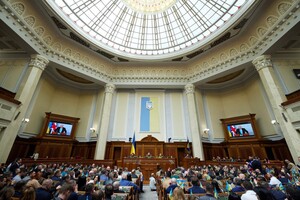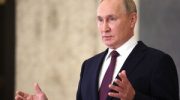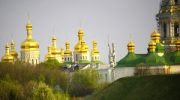In the initial phase of the war, parliamentarians worked in a “turbo mode”, and the “defense coalition” actually worked. People's deputies have now switched to business as usual, increasing politicking and populism, correcting spam from the opposition and pushing decisions from the ruling majority.

For the first time, the Verkhovna Rada of Ukraine is working under the conditions of a full-scale invasion RF. On February 24, deputies accepted martial law and switched to consensus Oleksandr Salizhenko, a parliamentary analyst with the HONEST Movement, writes that important and determined decisions are made at a special conciliation council, with minimal discussions in the session hall.
enmity and unity of parliament for the victory of Ukraine.
However, the further the Armed Forces rejected the enemy from Kyiv, the more the political struggle for the rating intensified. MPs registered absurd bills to change the words of the national anthem, or proposed to allow the use of weapons against violating servicemen, even if it leads to their death.
Due to publicity and public pressure, fortunately, these strange initiatives of people's deputies and remained unrealized.
During martial law, the agenda of the Verkhovna Rada, the place and time of the meeting are not announced in detail. During the 100 days of the full-scale war, 11 sittings took place, all within the walls of parliament, which is important in terms of voting and confidence in the adopted laws.
daily, etc. However, the results of the roll-call vote from the April 21 meeting have now become publicly available.
There are currently no online broadcasts from the session hall. Videos of the meetings appear ex post facto on the Rada channel.
Some deputies combine parliamentary work with the service on the front line, some volunteer or help voters in constituencies, but there are also those who left Ukraine in early February and still miss the Verkhovna Rada.
, that almost two dozen people's deputies regularly miss the Verkhovna Rada during the full-scale war between Russia and Ukraine. Some of these deputies are suspected of treason.
During this time, a mutation of the OPZH took place – its deputies regrouped and created two new groups (PZZHM and “Restoration of Ukraine”), some of which are still non-partisan. However, although there is no faction, its mandates exist.
All former MPs from the OPZH still have access to state secrets, can participate in closed meetings of the Council, Committees and TSC.
On the positive side, in March, the Verkhovna Rada stripped Ilya Kivu, the former deputy head of the OPZH, of his own statement. He is currently in Russia and writing letters to Russian President Vladimir Putin asking for political asylum and Russian citizenship.
Today, almost every session of the Verkhovna Rada under martial law is attended by European leaders Boris Johnson. , Andrzej Duda, Mark Rutte, Zuzana Chaputova. Some of the world leaders are present in person at the session hall, and some are speaking via video.
It is already clear that with each visit to Ukraine, European politicians will know our history and the words of the national anthem better than some Ukrainian MPs. After all, Europeans usually begin and end their speeches with lines of Ukrainian poetry, cite historical analogies of our common past and struggle.
And some European parliamentarians even speak in Ukrainian in the Verkhovna Rada, such as the Marshal of the Polish Senate Tomasz Grodski.
There is a noticeable tendency that with each sitting of the Verkhovna Rada the parliament reduces the pace of work according to the principle of general consensus, which was in the first days of full-scale Russian aggression.
the whole agenda, the majority passed the bill by a constitutional majority, and there were no “failed” bills, now this trend has changed markedly.
Read also: The Verkhovna Rada during the war decided to reform labor law
The “defense coalition” is no longer mentioned in the session hall, people's deputies have gradually switched to business as usual, increased politicking and populism, corrective spam from the opposition and pushing decisions from the ruling majority. However, an important point in the efficiency of the legislative work of the parliament is that the adopted bills are usually signed and submitted to the President by the Speaker of the Verkhovna Rada on the same day.
It is hoped that together with the further victories of the Ukrainian army and the expulsion of the Russian occupiers from Ukraine, our politicians will work and not engage in narrow party mercantile interests that play into the hands of the enemy, but will strive for unity and a common future. . We are strong only when we are united.
Earlier it was reported that the Verkhovna Rada has prepared a bill to compensate Ukrainians for lost housing . We are talking about providing living space with a limit of 150 square meters. meters.


